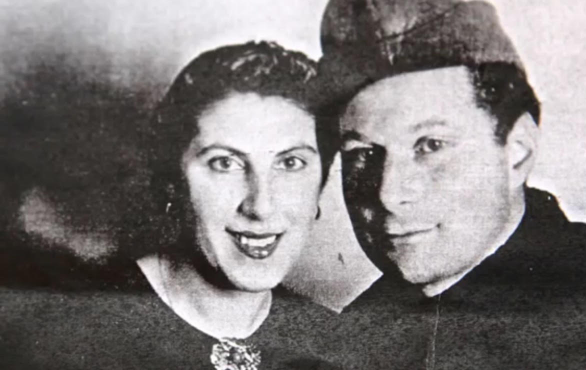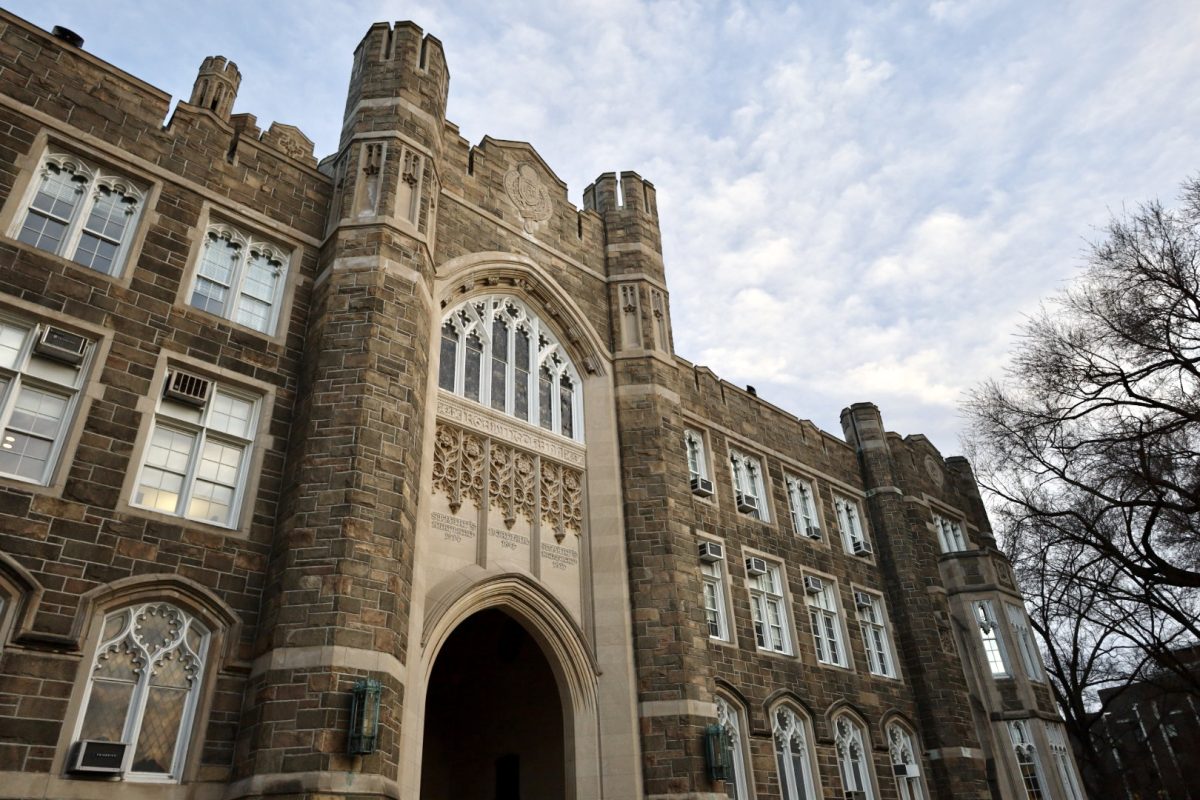
By Delaney Benison
Over the course of a century, the unsuspecting are often reunited. This was what Dr. Robert Spiegelman and his 100-year-old student, Mathilde Freund realized during a recent College at 60 class at the Lincoln Center campus.
In class, Spiegelman was intent on playing two videos for his class. He had decided to play the footage of “Beethoven’s 9th Symphony” being played to celebrate Hitler’s birthday on April 20, 1942.
Spiegelman sought to illustrate the irony of the melodic tune, ending in “Ode to Joy,” being played while the Jewish people were suffering at the height of the Holocaust. The music struck a chord in Fruend, reminding her of a past immortalized in textbooks but rarely recollected by those living in 2016. Before Spiegelman could play his second clip, Freund intervened with a tale of personal woe in the Holocaust, one she did not realize her professor was also connected to.
“I had to crawl on my stomach to go over the border from Austria to France,” she told The Fordham Ram. “The Germans didn’t let you out, and the French didn’t let you in. It was very, very difficult and dangerous. ”
In Sept. of 1939, all Austrian and German Jews were put in a detention camp and were referred to as enemies of France because they were Austrian and German. The men were given the choice to enlist for Allies, and there went her husband, father, brother, cousin and uncle all enlisted.
“I’m very proud of them that they volunteered,” she said.
In 1940 France fell to Germany and Freund’s family members were sent back, forced to go into hiding. They found a place to hide in the stables and woods in Lyon but was eventually caught by the Gestapo.
“Everything was very heartbreaking,” Freund said. “My brother Alfred was 26-years-old, and he was stowed away with his wife and baby. The Gestapo never asked for any papers. They lowered the pants and whoever was circumcised was taken.”
On Aug. 17, the Gestapo took 150 people, including Alfred, to the Bron Airport. The individuals were forced to dig their own graves and then were killed with machine guns in what is now known as the Massacre of Lyon.
Freund and her father had to go to the mass graves and try to identify her brother’s corpse, eventually recognizing pieces of his burnt clothing.
Freund would spend much of the time of the Holocaust hiding in the woods.
“We were in hiding without hygiene,” she said. “It was very hard. I went, at one point, three days without water. It is so terrible. Finally I was given a cup of black coffee and it was the greatest feeling.”
Freund ended up in a Montluc prison with my mother, where she was tortured by the guards.
“No one ever came out of there alive,” she said. It was run by Klaus Barbie, known by Fruend as ‘The Butcher of Lyon.’
“My mother cried and screamed, but I was very still,” she said. By a stroke of luck involving an error with a higher up officer, Fruend and her mother were inexplicably able to leave the prison with their lives.
In Sept. 1943, Freund’s husband, Fritz, needed medication and went into the city of Lyon. He was arrested there and deported to the German concentration camp, Buchenwald.
He was killed in March of 1945 shortly before the camp was liberated the following month — in part by Spiegelman’s father, Seymour, a U.S. Corporal during World War II was sent to Germany for the liberation.
After Freund spoke in class, she and Spiegelman conversed and realized the incredible coincidence. It is possible that Freund’s husband could have been weeks away from being freed by Spiegelman’s father. However, Spiegelman’s father was reluctant to tell his son about his time in the war.
“My father never spoke about what he saw over there,” Spiegelman said. “I think that was pretty common among soldiers who returned after freeing Germany. He held on to these pictures and I think that’s how he communicated what he experienced,” said Spiegelman.
Seymour took pictures of the horrors in camp Buchenwald in April of 1945, including the mass graves that had yet to be covered and the state of Germany in that moment of history.
“I think it’s so important that we tell these stories and keep giving voice to them,” said Spiegelman. “‘Truth crushed to earth will rise again,’ as Dr. Martin Luther King once said.”
After the Holocaust ended, Freund worked in hospitals in New York, including Mount Sinai, and has been involved in Fordham for 40 years.
“I have taken many different classes in philosophy and psychology,” she said. She finds personal solace in Fordham’s College at 60 program.
“Taking these classes helps me a great deal to survive my tragedies,” she said. “I have to speak up even though it hurts me all the time. I’m not bitter but I want to tell people what happened. It is important that people aren’t silent and speak up against injustice.”
Mathilde Freund and Dr. Spiegelman have built a friendship around this connection, and have bonded over the common admiration they hold for their family members.
“I am so glad I am alive to tell this story,” Freund said.“I wanted to tell the story. But there is nothing in books or movies and really even in words that can describe what it was like to actually be there. ”







































































































































































































